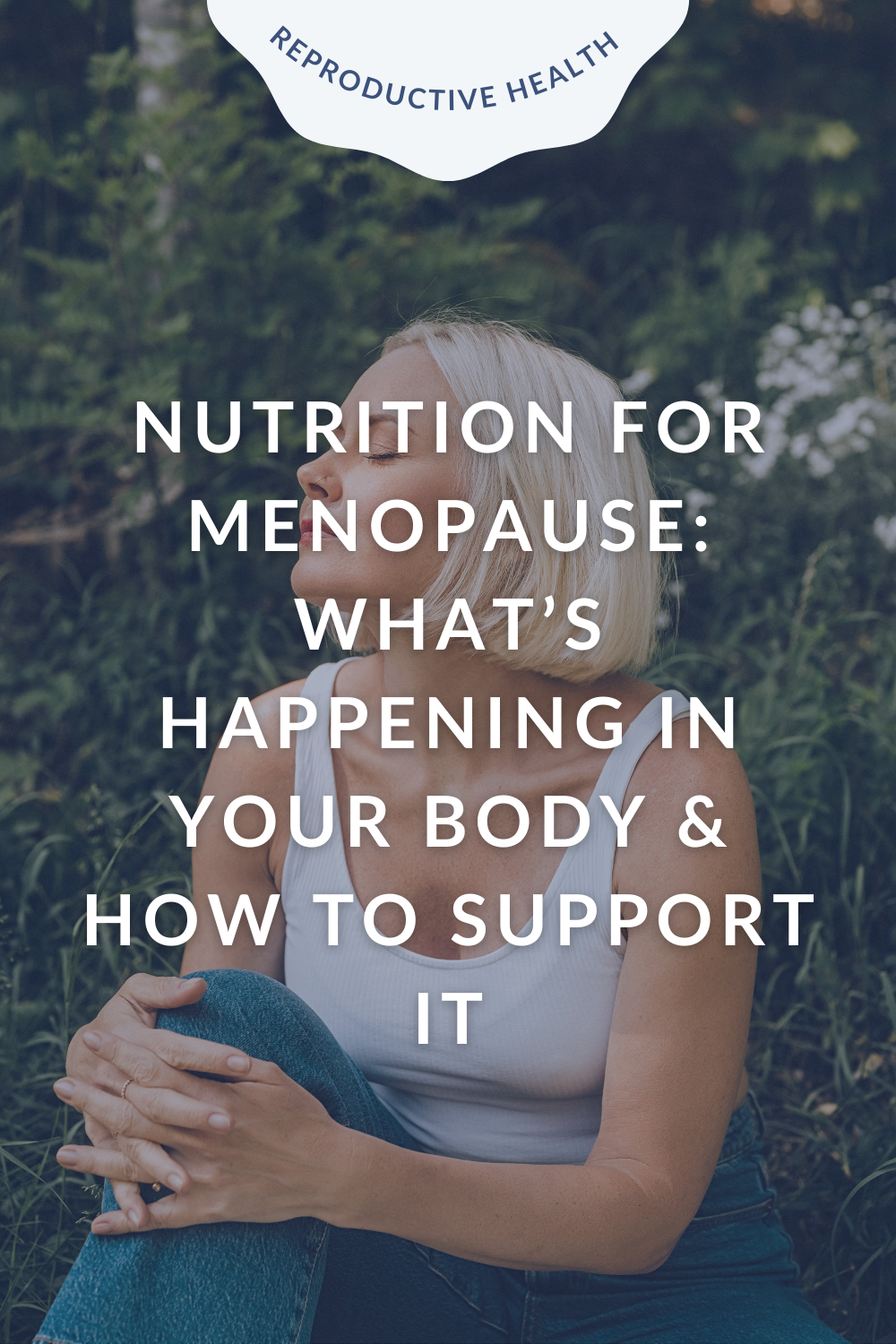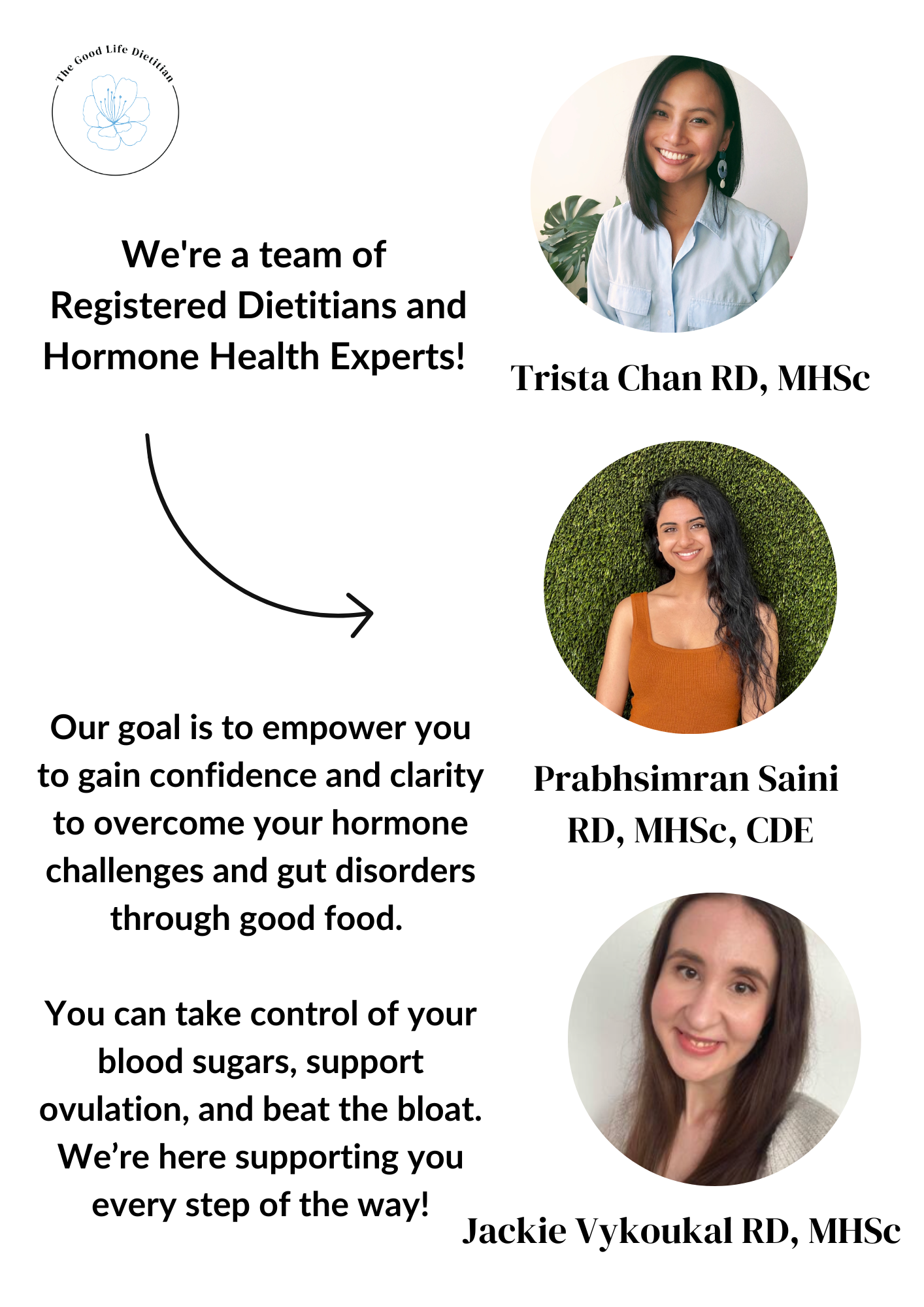Your Top 5 PCOS Questions, Answered
When you’re living with PCOS, the amount of information (and misinformation) out there can feel overwhelming. Should you cut coffee? Is gluten off-limits? Why is weight loss so difficult? And what kind of exercise is actually best?
These are questions we hear all the time inside the PCOS Recovery Program, in 1-on-1 nutrition programs and across social media. So today, I’m breaking down the top five questions we get asked about PCOS, with clear, evidence-based answers you can actually use..
1. Is Coffee Bad for PCOS?
Good news: coffee isn’t harmful, up to a certain threshold. Up to 400 mg of caffeine per day (about 3 cups of coffee) is considered safe for most adults. In fact, research suggests coffee may be protective for liver health in small doses.
If you’re trying to get pregnant or are already pregnant, it’s best to keep caffeine under 200 mg per day (that’s about 1 to 1.5 cups of coffee).
Research shows that this amount doesn’t increase the risk of miscarriage or preterm birth. Keep in mind that caffeine isn’t just in coffee, it's also in tea, chocolate, energy drinks and soft drinks. Also, be mindful of what you add to your drinks: syrups, sugar, and creamers can affect your blood sugar if used in large amounts.
✨ Tip: Enjoy your coffee, but don’t let it replace a balanced breakfast or hydration. The fluid in coffee does count toward your daily water intake, but pairing it with real food (like eggs + whole-grain toast) keeps your hormones happy.
2. Why Is It So Hard to Lose Weight with PCOS?
If you’ve struggled with weight changes despite doing “all the right things,” you’re not alone.
People with PCOS tend to experience higher weight gain over time, but research suggests this isn’t due to lack of discipline or “poor habits” in this group of people. In fact, habits tend to be very similar to those without PCOS and to date there’s no research that suggests strongly otherwise.
This points to the potentially larger role of internal factors, such as altered metabolic rate, postprandial thermogenesis, appetite dysregulation and other biological mechanisms.
But since research on behaviours and internal factors in people with PCOS are sparse, and the exact pathophysiology of PCOS is still not fully understood, it’s hard to pinpoint a single cause.
What we do know is harmful is that unfortunately, weight stigma often paints PCOS as a “lazy person’s disease,” which couldn’t be further from the truth. Most of my clients with PCOS are some of the most motivated and health-conscious people I’ve worked with.
✨ Takeaway: Instead of focusing only on the number on the scale, focus on health-promoting behaviors like balanced and varied meals, regular movement, quality sleep, stress management and nervous system support, holistic and medical care. These matter more for long-term health than weight alone.
3. Should I Go Gluten-Free or Dairy-Free for PCOS?
Unless you have celiac disease, a milk protein allergy, or confirmed intolerances, there’s no strong evidence that cutting out gluten or dairy will improve PCOS prognosis or symptoms.
In fact, foods like Greek yogurt, kefir, and whole grains provide protein, calcium, and B vitamins - all nutrients that support hormones and metabolism. Restricting unnecessarily can lead to nutrient gaps and honestly, diet burnout. That said, if you do cut them out, the priority is to find nutrient-dense alternatives to prevent nutrient gaps in the diet.
✨ Takeaway: Instead of removing entire food groups, focus on a balanced, nutrient-dense diet. If certain foods make you feel unwell, work with your physician for allergy testing, or with a dietitian for a guided elimination and reintroduction strategy.
4. What Is the Best Diet for PCOS?
Surprise: There’s no single “gold standard” diet for PCOS. But research shows that dietary patterns emphasizing whole, minimally processed foods - like the DASH diet and Mediterranean diet - are especially beneficial for metabolic and hormonal parameters.
In fact, studies show that even when macronutrients (carbs, protein, fats) are the same, people who followed the DASH diet saw greater improvements in insulin resistance and metabolic health compared to a standard calorie-restricted diet.
✨ Takeaway: Focus on diet quality. Build meals around fruits, vegetables, whole grains, lean proteins, nuts, seeds, and moderate dairy. Nutrition by addition - not restriction - is the most effective approach!
5. What Is the Best Exercise for PCOS?
Here’s the thing: all exercise supports PCOS health. Whether it’s walking, soccer, martial arts, weight lifting, cycling or yoga - regular movement improves insulin sensitivity, supports heart health, and helps regulate hormones.
The guidance from Exercise and Sports Science Australia builds on the 2023 international guidelines for managing PCOS:
Aim for 150–300 minutes of moderate exercise each week, like brisk walking, dancing or yard work
Or 75-150 minutes of vigorous exercise each week, like running or swimming
You can also do a mix of moderate and vigorous exercise, spread throughout the week
Do strength training on two days a week (not back-to-back)
Interestingly, restorative exercises like yoga may help promote fertility.
✨ Takeaway: The best exercise is the one you actually enjoy and can stick with consistently. Aim for a mix of aerobic, resistance and restorative movement.
Key Takeaways
Coffee: Safe under 400 mg/day; limit to ~200 mg if TTC or pregnant.
Weight: PCOS weight challenges are linked to internal factors. Focus on behaviours.
Gluten/Dairy: No need to cut them unless you have an allergy/intolerance.
Diet: Focus on quality (DASH/Mediterranean principles) over strict macros.
Exercise: All forms are beneficial - choose a mix you enjoy.
Hi! I’m Trista
A Registered Dietitian and reproductive health expert. I’m here to help you gain confidence to overcome your Polycystic Ovary Syndrome and digestive health woes, while bettering your relationship with food.
CATEGORIES
Want More Support from The Good Life Dietitian?
If you’re ready to stop the overwhelm and learn how to manage PCOS with confidence and ease, the PCOS Recovery Program is for younow open for enrollment!
You’ll get:
✅ 12 weeks of live coaching
✅ Daily chat support
✅ Over 20 video modules
✅ PCOS-friendly meal plans & grocery lists
✅ A supportive community that gets it
References
Dranoff JA. Coffee as chemoprotectant in fatty liver disease: caffeine-dependent and caffeine-independent effects. Am J Physiol Gastrointest Liver Physiol. 2023 Jun 1;324(6):G419-G421. doi: 10.1152/ajpgi.00026.2023. Epub 2023 Mar 28. PMID: 36976807.
Georgopoulos NA, Saltamavros AD, Vervita V, Karkoulias K, Adonakis G, Decavalas G, Kourounis G, Markou KB, Kyriazopoulou V. Basal metabolic rate is decreased in women with polycystic ovary syndrome and biochemical hyperandrogenemia and is associated with insulin resistance. Fertil Steril. 2009 Jul;92(1):250-5. doi: 10.1016/j.fertnstert.2008.04.067. Epub 2008 Aug 3. PMID: 18678372.
Lakin H, Sheehan P, Soti V. Maternal Caffeine Consumption and Its Impact on the Fetus: A Review. Cureus. 2023 Nov 4;15(11):e48266. doi: 10.7759/cureus.48266. PMID: 37929268; PMCID: PMC10625456.
Moran LJ, Noakes M, Clifton PM, Wittert GA, Tomlinson L, Galletly C, Luscombe ND, Norman RJ. Ghrelin and measures of satiety are altered in polycystic ovary syndrome but not differentially affected by diet composition. J Clin Endocrinol Metab. 2004 Jul;89(7):3337-44. doi: 10.1210/jc.2003-031583. PMID: 15240612.
Patil AD, Pathak SD, Kokate P, Bhogal RS, Badave AS, Varadha M, Joshi BN, Tandon D, Begum S, Surve SV, Dalvi PD. Yoga Intervention Improves the Metabolic Parameters and Quality of Life among Infertile Women with Polycystic Ovary Syndrome in Indian Population. Int J Yoga. 2023 May-Aug;16(2):98-105. doi: 10.4103/ijoy.ijoy_88_23. Epub 2023 Nov 21. PMID: 38204771; PMCID: PMC10775836.
Robinson S, Chan SP, Spacey S, Anyaoku V, Johnston DG, Franks S. Postprandial thermogenesis is reduced in polycystic ovary syndrome and is associated with increased insulin resistance. Clin Endocrinol (Oxf). 1992 Jun;36(6):537-43. doi: 10.1111/j.1365-2265.1992.tb02262.x. PMID: 1424179.
Sabag A, Patten RK, Moreno-Asso A, Colombo GE, Dafauce Bouzo X, Moran LJ, Harrison C, Kazemi M, Mousa A, Tay CT, Hirschberg AL, Redman LM, Teede HJ. Exercise in the management of polycystic ovary syndrome: A position statement from Exercise and Sports Science Australia. J Sci Med Sport. 2024 Oct;27(10):668-677. doi: 10.1016/j.jsams.2024.05.015. Epub 2024 May 31. PMID: 38960811.













